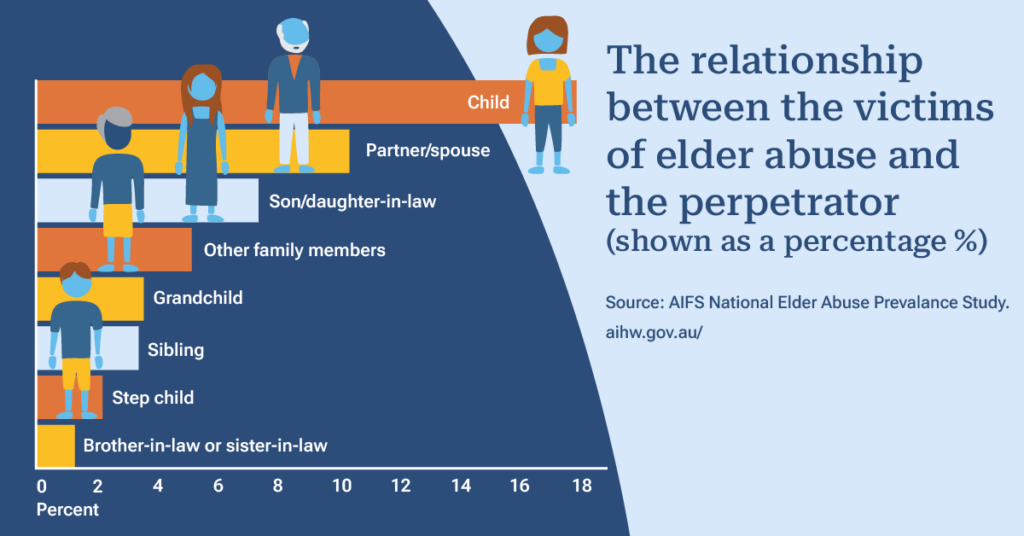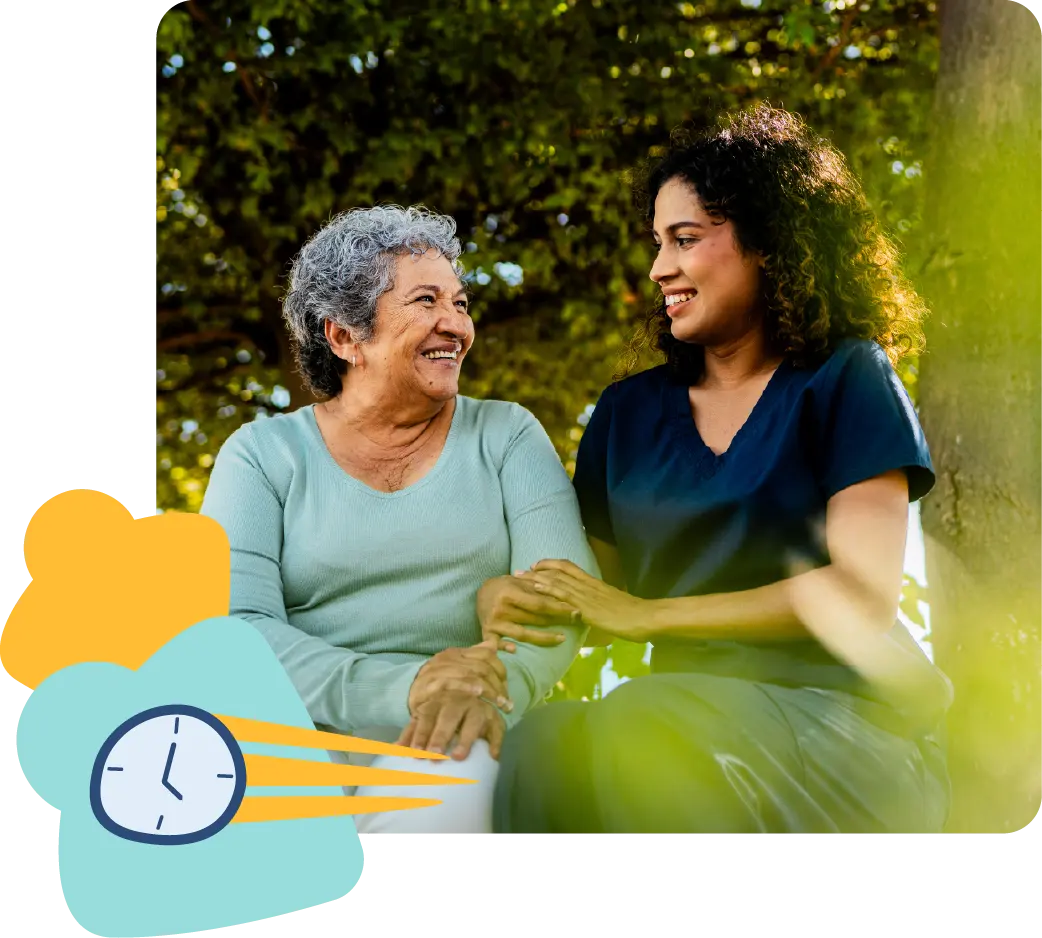World Elder Abuse Awareness Day
6 Jun 2024

As our global population ages, it has become increasingly vital to address the challenges and injustices faced by our elders. World Elder Abuse Awareness Day (WEAAD), which falls on 15 June each year, serves as a reminder of our collective responsibility to protect and support the older members of our communities. By raising awareness, educating ourselves, and taking action, we can help ensure that every older person can live their life safety and with respect. Join us as we delve into the significance of WEAAD, explore the various forms of elder abuse, identify common signs, and highlight the resources available in Australia to support those affected. Together, we can make a difference and create a safer, more compassionate world for our elders.
Understanding Elder Abuse
Elder abuse is a deeply concerning issue that affects millions of older people worldwide. According to the Australian Institute of Health and Welfare, 1 in 6 adults (15%) or 598,000 experienced elder abuse in 2023. Understanding elder abuse is crucial to safeguarding the dignity and wellbeing of older individuals. The impact of abuse on elders can be profound, affecting their physical health, emotional state, and overall quality of life. It can take many forms, including physical, emotional, financial, and sexual abuse, as well as neglect, and can occur in various settings, such as within families, in residential care facilities, and in the broader community. It’s important to recognise that elder abuse is often hidden and underreported, which is why it’s essential to approach the issue with empathy and a commitment to advocacy. By fostering a compassionate and informed community, we can better protect our elders and ensure they receive the respect and care they deserve.
Signs to look out for
Recognising the signs of elder abuse is crucial in protecting older individuals from harm. Some common indicators include:
Physical signs: Unexplained bruises, cuts, burns, or injuries. Frequent visits to different healthcare providers or delay in seeking medical treatment can also be a red flag.
Behavioral changes: Sudden changes in behaviour, such as withdrawal, depression, anxiety, or fearfulness around certain individuals, can indicate abuse.
Financial red flags: Unusual or large withdrawals from bank accounts, changes in financial situations, or missing belongings and valuable assets may suggest financial exploitation.
Neglect: Poor hygiene, untreated medical conditions, malnutrition, dehydration, or unsanitary living conditions can be signs of neglect.
Isolation: An elder being isolated from friends, family, or social activities, especially if it is sudden or unexplained, might be a sign of abuse.
Take action
Awareness is the first step towards preventing elder abuse. By recognising the signs and knowing where to get help, we can all play a part in protecting our older population. Here are some ways you can take action:
Educate yourself and others: Learn more about elder abuse and share this information with your community. Awareness campaigns, workshops, and discussions can help spread knowledge and prevent abuse.
Support older individuals: Reach out to older friends, family members, and neighbours. Regular contact can help detect any signs of abuse and provide emotional support.
Advocate for stronger protections: Advocate for stronger laws and policies to protect older people. Support organisations working to end elder abuse and promote the rights of the elderly.
Volunteer: Offer your time to organisations that support older individuals. Volunteering can make a significant difference in the lives of those who may be vulnerable to abuse.
Report suspected abuse: If you suspect someone is being abused, don't hesitate to report it. Contact the appropriate helplines or authorities to ensure the person gets the help they need.
Where to get help
In Australia, there are several resources and organisations dedicated to supporting older individuals experiencing abuse and those who suspect abuse. Here are some key places to get help:
National Elder Abuse Phone Line (1800 ELDERHelp or 1800 353 374): This is a free, confidential helpline providing information, support, and referrals to local services.
Seniors Rights Service (02 9281 3600): This organisation offers free, confidential advocacy, advice, and education to older people in New South Wales.
Elder Abuse Helpline (1300 651 192): For residents in Queensland, this helpline offers information, support, and referrals to appropriate services.
Victorian Advocacy League for Individuals with Disability (VALID) (03 9416 4003): While primarily focused on disability advocacy, VALID also provides support to older people with disabilities who may be experiencing abuse.
Council on the Ageing (COTA): COTA is a national organisation representing the rights and interests of older Australians. They provide information and support through their state and territory offices.
My Aged Care: For assistance with other aged care matters, visit the My Aged Care website or call 1800 200 422.
Aged Care Quality and Safety Commission: If you wish to raise concerns about your aged care support, you can contact the Aged Care Quality and Safety Commission to file a complaint or seek guidance.
Legal Aid Commissions: Legal Aid provides legal advice and representation for older people experiencing abuse. Each state and territory in Australia has its own Legal Aid Commission.
Local Health and Community Services: Many local health and community services offer support and resources for elder abuse. This includes GPs, social workers, and community health centres.
Police: In cases of immediate danger or suspected criminal activity, contacting the police is crucial. They can provide immediate assistance and ensure the safety of the older person. World Elder Abuse Awareness Day is a crucial reminder of the importance of protecting and respecting our older population. By raising awareness, recognising the signs of abuse, and knowing where to get help, we can make a significant impact in preventing elder abuse. Let's stand together to ensure that all older individuals live with dignity, respect, and safety.

